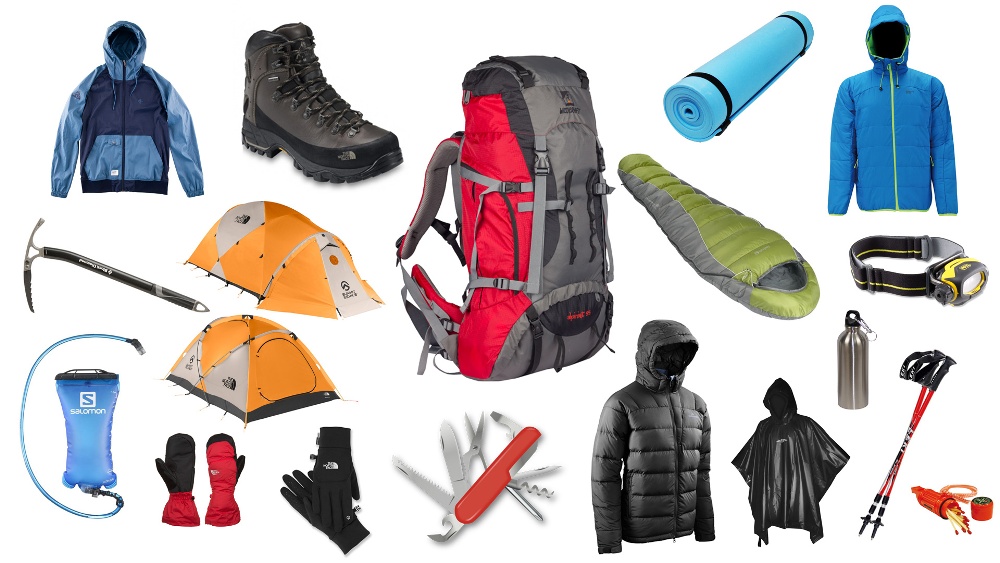Authentic Tanzania Cultural Tours: Discover the Diverse Tribes and Traditions of East Africa
Blog

What Gear Do I Need to Bring for Kilimanjaro Climbing?
We have suggested the gears to bring for your Kilimanjaro Climbing as you're responsible for bringing all personal gears and equipment's while communal equipment such as (tents, food, cooking items, etc.) are provided by us. Below is a gear list of required, recommended and optional items to bring on your Kilimanjaro climb.
Technical Clothing
1 – Waterproof Jacket, breathable with hood
1 – Insulated Jacket, synthetic or down
1 – Soft Jacket, fleece or soft-shell
2 – Long Sleeve Shirt, light-weight, moisture-wicking fabric
1 – Short Sleeve Shirt, light-weight, moisture-wicking fabric
1 – Waterproof Pants, breathable (side-zipper recommended)
2 – Hiking Pants
1 – Fleece Pants
1 – Shorts (optional)
1 – Long Underwear (moisture-wicking fabric recommended)
3 – Underwear, briefs (moisture-wicking fabric recommended)
2 – Sport Bra (women)
Headwear
1 – Brimmed Hat, for sun protection
1 – Knit Hat, for warmth
1 – Balaclava, for face coverage (optional)
1 – Bandana (optional)
Hand wear
1 – Gloves, warm (waterproof recommended)
1 – Gloves, thin
Footwear
1 – Hiking Boots, warm, waterproof, broken-in
1 – Gym Shoes, to wear at camp (optional)
3 – Socks, wool or synthetic
3 – Sock Liners, tight, thin, synthetic, worn under socks to prevent blisters (optional)
1 – Gaiters, waterproof (optional)
Accessories
1 – Sunglasses or Goggles
1 – Backpack Cover, waterproof (optional)
1 – Water Bottle (Nalgene, 32 oz.)
1 – Water Bladder (Camelback type, 3 liters)
1 – Towel, lightweight, quick-dry (optional)
1 – Pee Bottle, to avoid leaving tent at night (recommended)
Stuff SACKS, Dry Bags or Plastic Bags, various sizes, to keep gear dry and separate
Equipment
1 – Sleeping Bag, warm, four seasons
1 – Trekking Poles, collapsable (highly recommended)
1 – Head lamp, with extra batteries
1 – Duffel bag, 50-90L capacity, for porters to carry your equipment
1 – Daypack, 30-35L capacity, for you to carry your personal gear
NOTE: ALL GEARS MAY BE RENTED ON LOCATION
Other
The most common mistake that climbers make is that they over pack and bring way too much gear.
Be selective in what you take with you. Please note that our porters are limited to carrying 33 lbs (15 kgs) of your personal belongings. Everything the porters will carry for you between campsites should be placed into the duffel bag, including the sleeping bag, but it is OK to pack the sleeping bag separately if necessary.
Our porters will place your duffel bag and sleeping bag into a large, sturdy, waterproof bag with a roll-top closure.
If you have excess weight, you will be required to hire an additional porter.
Plastic, recyclable water bottles are not allowed in the park, due to past problems with litter. So water should be carried in Nalgene bottles, water bladders, or similar devices. You should be able to carry 3-4 liters of water with you at all times. Please do not bring alcohol. It is illegal to have alcohol in the park. Our staff will not carry it for you. Besides, drinking and high altitude do not mix well.
Checked luggage on airplanes can get lost or delayed on the way to Tanzania. You should prepare for this possibility by wearing or carrying on the items that are essential to your Kilimanjaro climb. While most clothing, gear and equipment can be replaced in Tanzania prior to your climb, there are some things that you should not replace.
Incredible Africa Adventures recommends that you wear one complete hiking outfit on the plane, including a long sleeve shirt, hiking pants, underwear, socks, and hiking boots. In your carryon baggage, you should bring your backpack, waterproof jacket and pants, insulated jacket, fleece pants, snacks, toiletries, medications, camera and all paperwork. Airline regulations do not allow you to carry trekking poles on the plane. Make sure you do wear/carry your hiking boots; wearing a different pair of boots on your climb will likely cause blistering.
If your baggage is lost or delayed, please notify us immediately upon your arrival so we can assist you in assembling the necessary gear. We will take you to local, independently owned rental gear shops in Moshi. Note that these shops generally carry second-hand items that may not be up to Western standards. We cannot guarantee the fit, quality or functionality of items found in local shops. Therefore, we strongly encourage you to carry on the most important pieces of gear as noted above. We will make reasonable attempts to deliver delayed luggage to you on the mountain. All additional expenses that are incurred by us while resolving lost or delayed luggage problems must be reimbursed.
Join us today and experience the adventure of a lifetime.
Drop us a line. Our Safari experts will answer all your questions in 24 hours